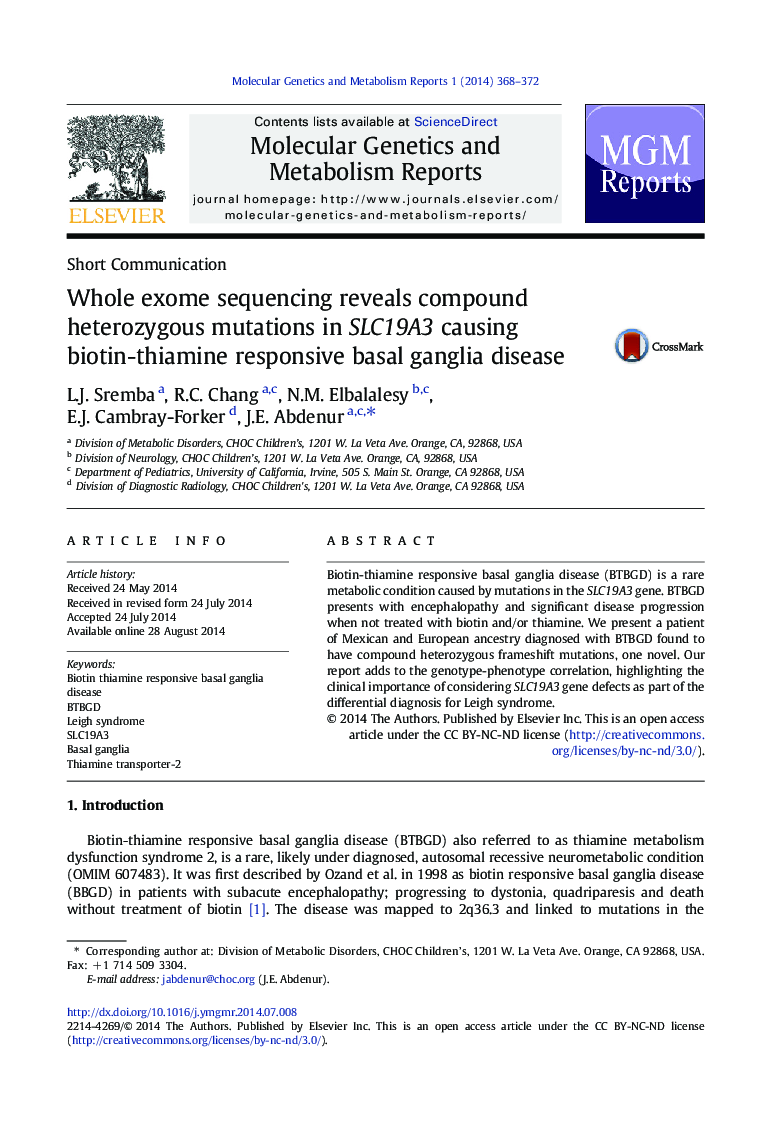| Article ID | Journal | Published Year | Pages | File Type |
|---|---|---|---|---|
| 2058914 | Molecular Genetics and Metabolism Reports | 2014 | 5 Pages |
Abstract
Biotin-thiamine responsive basal ganglia disease (BTBGD) is a rare metabolic condition caused by mutations in the SLC19A3 gene. BTBGD presents with encephalopathy and significant disease progression when not treated with biotin and/or thiamine. We present a patient of Mexican and European ancestry diagnosed with BTBGD found to have compound heterozygous frameshift mutations, one novel. Our report adds to the genotype-phenotype correlation, highlighting the clinical importance of considering SLC19A3 gene defects as part of the differential diagnosis for Leigh syndrome.
Keywords
Related Topics
Life Sciences
Biochemistry, Genetics and Molecular Biology
Biochemistry, Genetics and Molecular Biology (General)
Authors
L.J. Sremba, R.C. Chang, N.M. Elbalalesy, E.J. Cambray-Forker, J.E. Abdenur,
